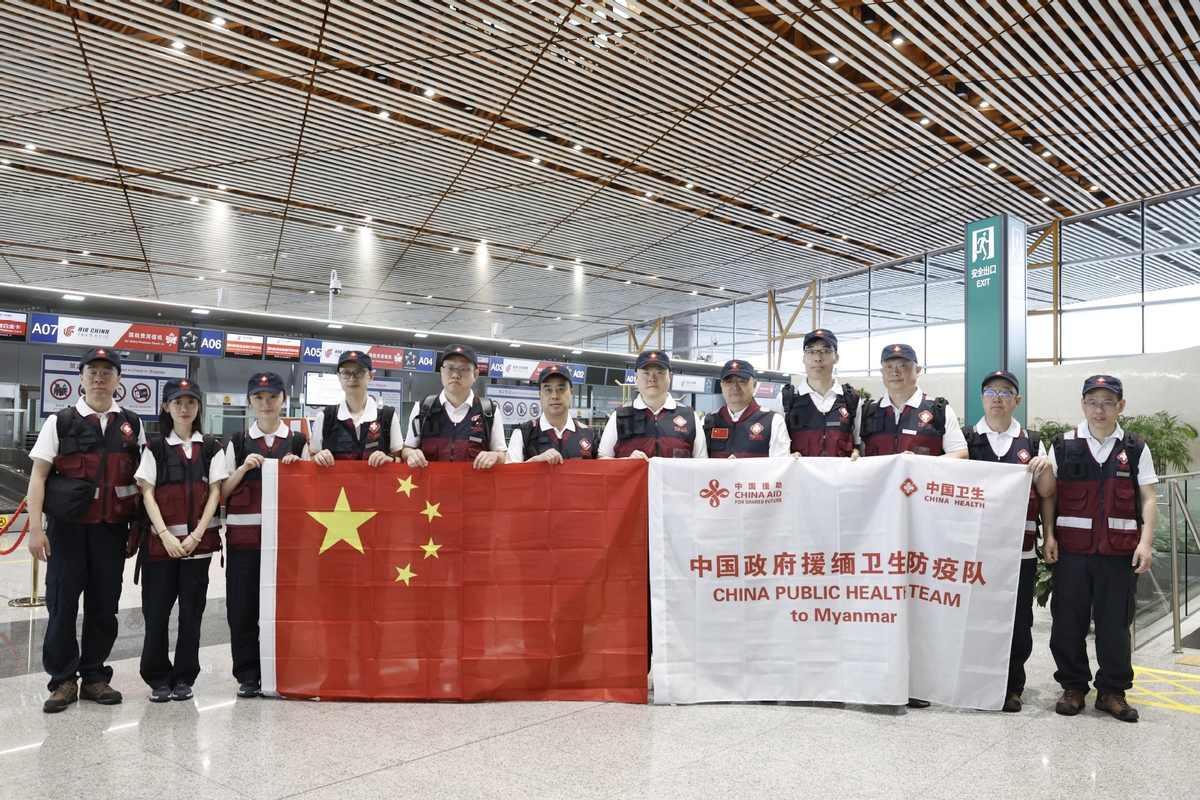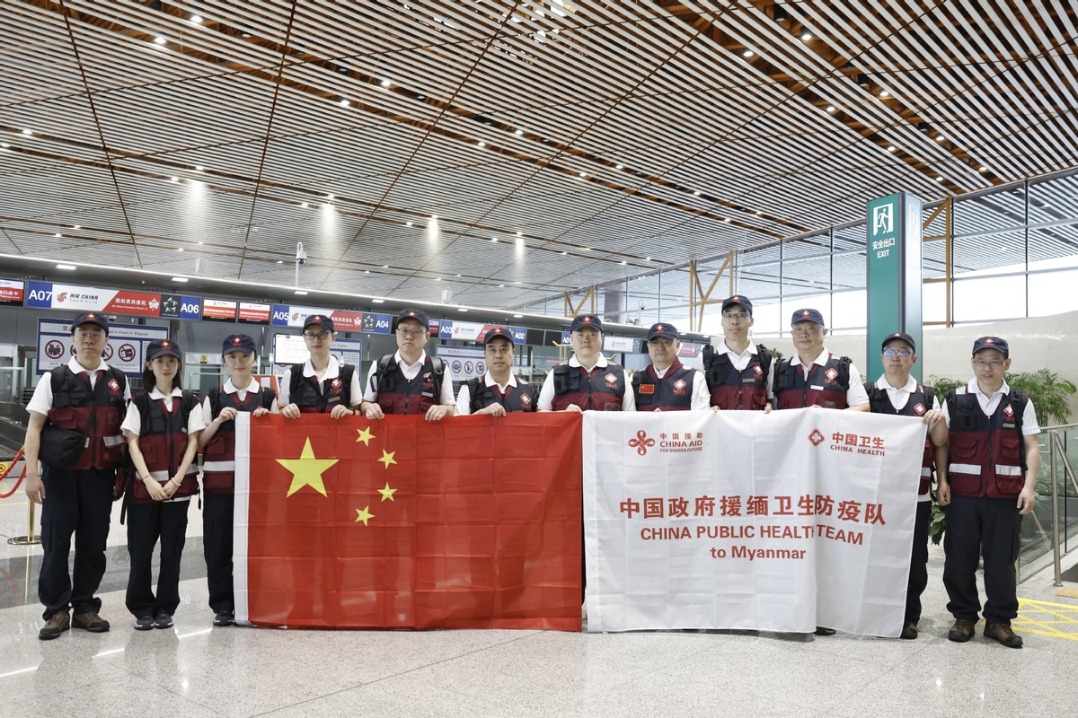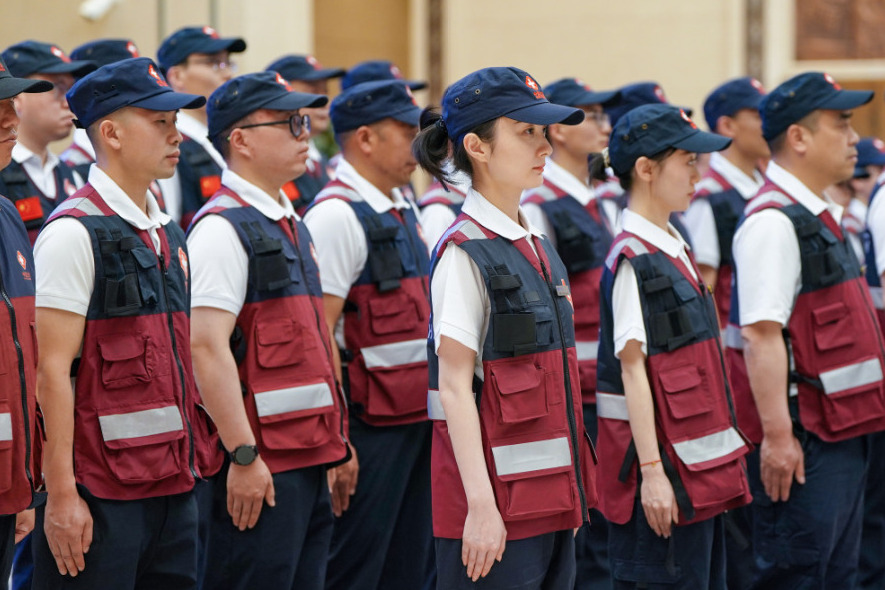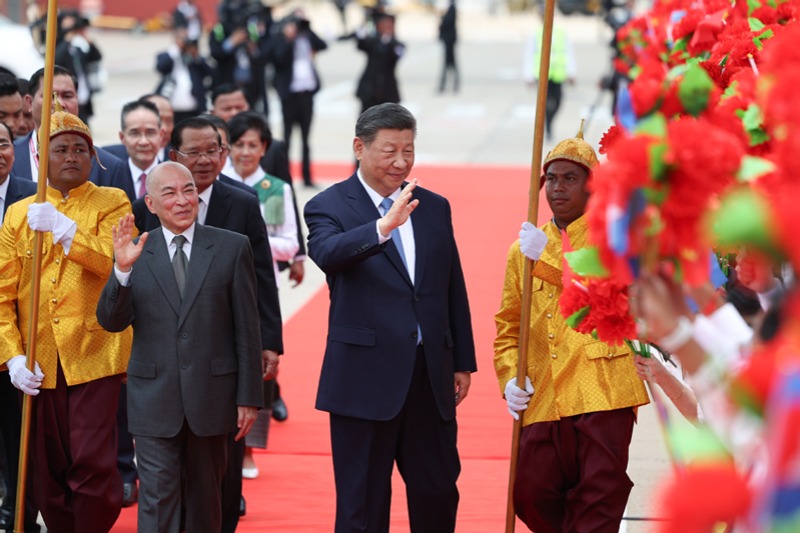China's second epidemic prevention team sent to quake-hit Myanmar


Fifty Chinese health workers departed on Saturday from Kunming, Yunnan province, to assist Myanmar with its epidemic prevention efforts following a magnitude 7.9 earthquake that devastated the country in late March.
The team's deployment is part of China's ongoing post-disaster relief mission. Its trip marks China's second health and epidemic prevention aid mission to Myanmar. The first team returned on April 6 after a nine-day deployment.
According to Chen Lei, deputy director of the emergency response department of the National Disease Control and Prevention Administration and leader of the team, the earthquake caused severe damage to public health infrastructure. Combined with extreme heat and heavy rainfall, the region is now facing a complex and critical epidemic situation involving diseases such as cholera, measles, dengue fever and malaria.
The team will be stationed in Mandalay, one of the hardest-hit areas, and will assist with infectious disease control, risk assessment, disease surveillance, laboratory testing, epidemiological investigations, environmental disinfection, vector control, drinking water hygiene testing, health education and technical training.
The earthquake, which struck on March 28, killed 3,726 people and injured 5,105, with 129 others still unaccounted for as of April 18, according to the information team of Myanmar's State Administration Council.
He Jibo, 47, from the Yunnan Center for Disease Control and Prevention, was a member of the first team. He recalled the hardships they endured, including extreme heat, limited access to food and water, fear of aftershocks and swarms of mosquitoes, but also noted the warmth of local residents and the strength of the China-Myanmar friendship forged through adversity.
He and four other colleagues were tasked with testing water quality at a hospital in Nay Pyi Daw, Myanmar's capital, where many of the earthquake's victims were being treated. With much of the hospital's infrastructure destroyed, patients were housed in tents in the parking lot.
The team tested water for eight indicators, including residual chlorine, total chlorine, pH and hexavalent chromium.
"We exchanged two big bottles of water for the specimen we tested. They were very moved," He said. "One local worker showed me they only had a small bag of dried food for the whole day, and said they didn't have medicine. We immediately donated six bottles of water. He was very happy."
Temperatures soared to 40 C, and mosquitoes were everywhere, making prevention of vector-borne diseases such as dengue fever and malaria a top priority.
The Chinese team conducted health surveys, distributed mosquito insecticide and manual sprayers, and provided disinfectants that helped alleviate a severe local shortage. Other focuses included heatstroke prevention and waste disposal.
The health workers had little time to prepare.
"We took our luggage and left just hours after the earthquake, without saying goodbye to our families," He said.
Since 2018, the team has undergone monthly training that includes trekking 5 to 8 kilometers with 23- to 28-kilogram backpacks, simulating conditions they may face in the field. They are trained in water testing, disinfection, camp building and emergency survival skills.
Zheng Erda, another team member, said that training proved invaluable.
"I used to think the backpack was too heavy, but now every time I go out, I want to bring 10 more bottles of water," Zheng said.
Zhao Xiaonan, 39, agreed, saying the training helped them endure extreme conditions.
"It felt like the whole Earth was burning," he said.
To ward off mosquitoes, they dripped medicated oil into their face masks. Communication was difficult, and the first two nights were sleepless. Their initial shelter was a damaged building with barely any ceiling.
"We wore helmets indoors, installed warning devices and mapped out an escape route," Zhao said. "What was funny was that just after we arrived, an aftershock hit and we all ran out."
He Jibo said he was touched by the support of local volunteers, who provided fruit, phone cards, slippers and towels, and helped interpret and make local contacts.
Zheng said the experience underscored the importance of their work. "I feel a strong sense of accomplishment."
U Than Htike, vice-president of the Myanmar-China Friendship Association in Mandalay, praised China's timely support.
"When major disasters strike, China always stands in solidarity with us and offers swift assistance," he said. "Epidemic prevention experts worked tirelessly on the front lines. We are truly grateful."
Yunnan has a long history of cooperation with Myanmar in public health, including donations of vaccines and medicines, training of local medical staff, and the establishment of testing labs and joint epidemic monitoring stations, according to the Yunnan Center for Disease Control and Prevention.
Xinhua contributed to this story.
Contact the writers at chenmeiling@chinadaily.com.cn





































